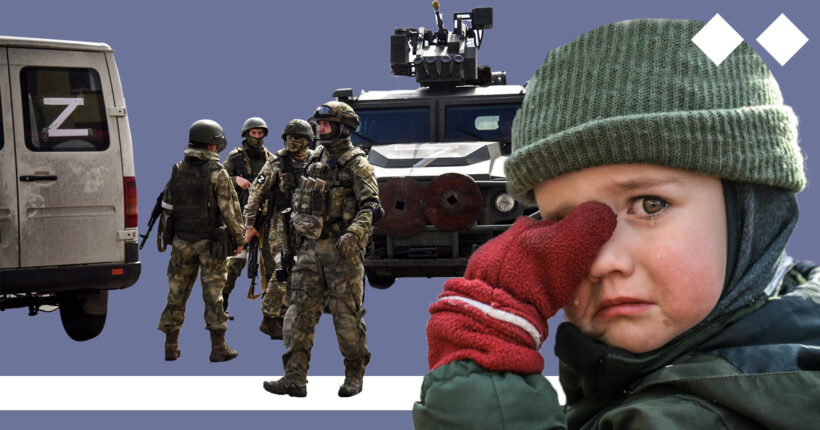
What is the problem?
According to official statistics, as of March 13, 2023, 366 children are considered missing, and 16,226 were deported to the territory of the russian federation. It is impossible to establish the exact number of injured children due to active hostilities and the temporary occupation of Ukraine's territory. According to data published by russia in open sources, the number of children transferred to russia is much higher — 733,000.
The experts at the charitable fund "Children's Voices" and the Kharkiv Institute of Social Research report that russians have created a complex apparatus to prepare Ukrainian children for deportation to russia. The russian occupation authorities conduct medical examinations and send children to russia, allegedly for the purpose of "rehabilitation in children's camps, patriotic education, and visiting the Christmas tree and invitations to holidays in russian cities." In addition, human rights defenders have recorded the deportation of children brought up in Ukrainian institutional care facilities.
Deported Ukrainians are taken to the most remote and depressed regions of russia — Siberia, the Far East, the North Caucasus, Chechnya, and Sakhalin. They are deprived of identity documents, personal belongings, and means of communication. At the same time, children are prohibited from leaving russian regions for at least two years.
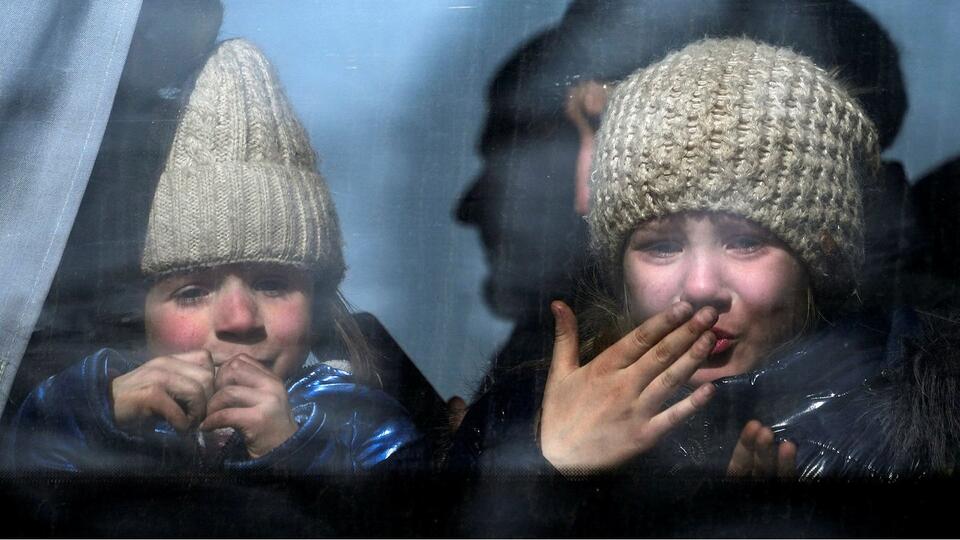
Filtration camps are an inseparable element of such displacement. Since February 24, the occupiers have created 27 filtration camps and prisons in the temporarily-occupied Ukrainian territories and inside russia.
According to Dmytro Lubinets, the human rights representative of the Ukrainian parliament, men, women, and children are separated during the "filtering" process. Then, they conduct interrogations and compare the information received from each family member. Parents may be detained depending on their answers to certain questions, and children can be sent to the territory of the russian federation alone.
Rubryka looked into why russia abducts Ukrainian children, what is the scale of this war crime, what happens to children on the territory of russia, and how they might be returned to their families.
It all started earlier
Deported children are conditionally divided into several groups, explains Alyona Lunyova, director of advocacy at the ZMINA Human Rights Center based in Kyiv.
- The first category is children who ended up on the territory of russia with their parents or adults accompanying them.
- The second category is children who became orphans during the armed conflict, most often because their parents were killed by russia. It is the most difficult to find such children because the Ukrainian often does not know about their whereabouts, or that their parents have been killed.
- The third category is children kept in residential institutions, sanatorium forms of education, or orphanages. Often the parents of these children are in difficult life circumstances, or are in the occupied territory.
- The fourth category is children sent to camps or for treatment on the territory of the russian federation together with their parents.
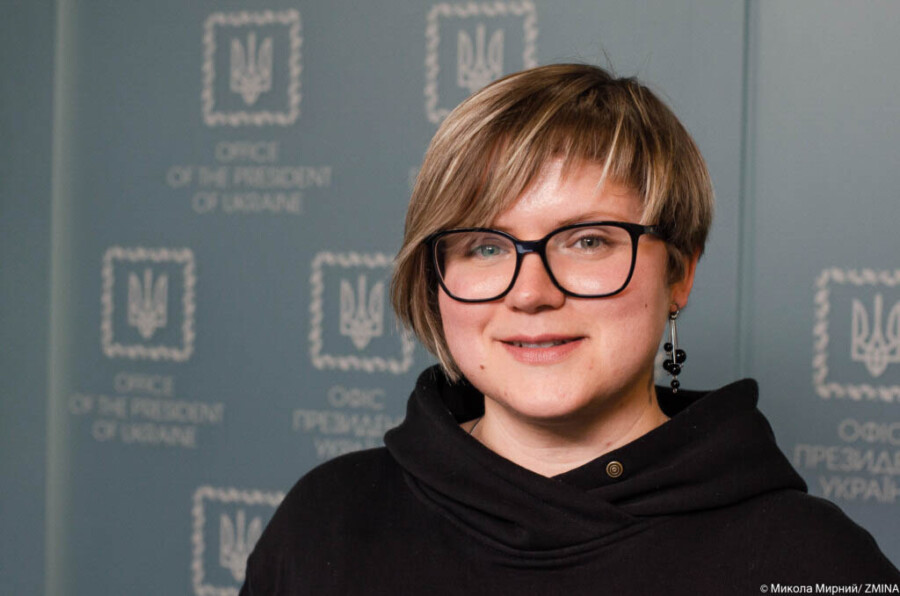
Advocacy director of the ZMINA Human Rights Center Alyona Lunyova
There are many cases in the Kharkiv and Kherson regions in which parents were offered by russian occupation authorities to have send their children sent to camping or for examination in the russian federation, while the fighting continues in Ukraine. The parents, wanting their children to be in safety for at least the time being, agreed. They may also agree because they are unable to take their children and leave the occupied territories.
There were examples in the Kharkiv and Kherson regions of parents agreeing to send their children to the russian federation when russian troops had taken over their areas in the initial wave of invasion – but when their areas were later de-occupied, they were cut off from their children. For its part, russia gave the parents only a certain time frame and threatened that if they did not come to pick up their children – on the other side of the front line – then they would be placed with different families on the territory of the russian federation.
"russia often tells parents that they will not be able to take their children and children — that their parents will not come for them, that they do not love them, and that they have abandoned them"
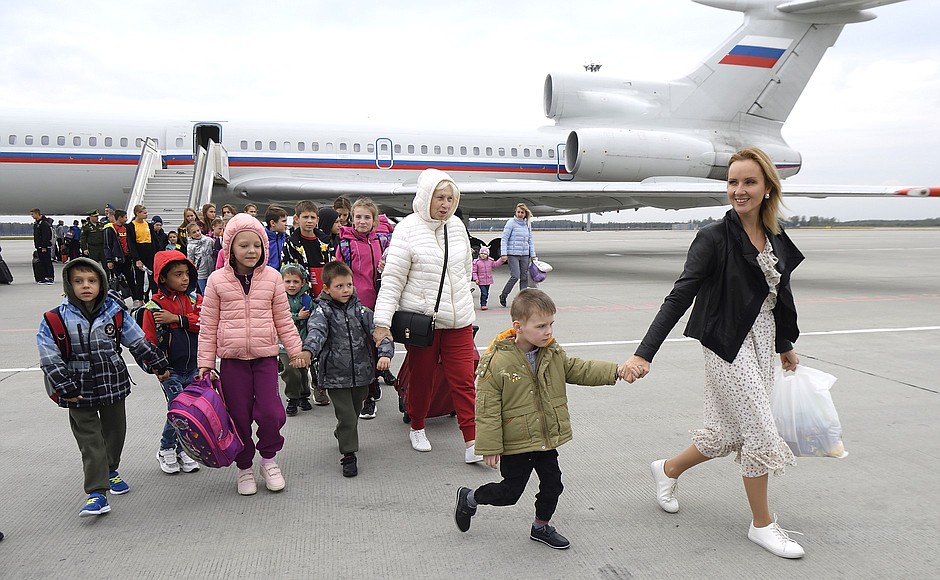
As for children in children's camps, according to the advocacy director of the ZMINA Human Rights Center, they are usually treated decently.
"They are fed and provided with some education, which takes place in russian. There is a 'minute of political information' where they talk about allegedly the 'real enemies' of Ukraine — Europe and the USA. russians turn children against Ukraine and partner countries and share lies about what the so-called 'special military operation' looks like," Lunyova says.
The children who successfully returned from russia also say that they faced bullying, insults, and devaluing because they are from Ukraine.
"We know of a case when a child placed in a russian family was punished by withholding food for violating certain norms of this family. The system of protection of children's rights on the territory of the russian federation is not only weak, it is basically non-existent. If we assume that the child may encounter some negative things there, it is not clear where they can complain and receive protection," Lunyova told Rubryka.
"Part of the abducted children are in residential institutions, and some were distributed among families"
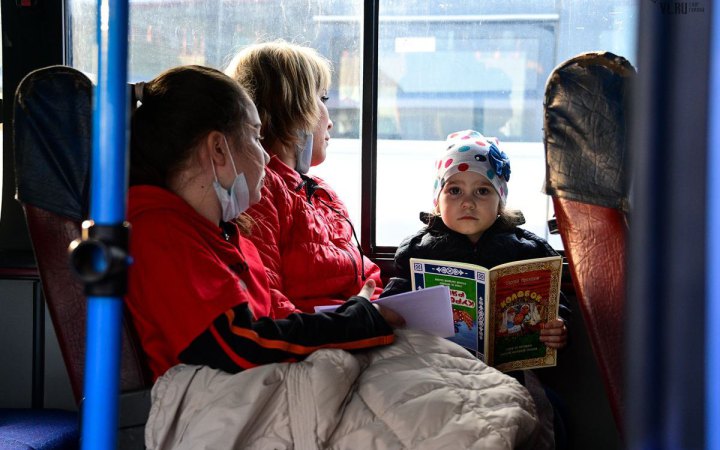
Getting children back from russia and reuniting them with their families in Ukraine is a difficult problem with no easy answers. Authorities and advocates say they are unsure whether the russian families have even adopted the children against their will, or not.
When Lunyova watched a recent investigative report aired by the russian opposition television channel "Dozhd," she got the impression that adoptive families in russia did not really want to take Ukrainian children, and feels that russia may be creating a situation where families are actually forced to adopt Ukrainian children. Lunyova reasons that on the one hand, russian propaganda boasts that families actively and eagerly adopt Ukrainian children. On the other hand, the reality is that russia is unlikely to have the capacity to place Ukrainian children in residential institutions because they would be taking the place of russian children.
On February 14, 2023, the Laboratory of Humanitarian Studies of the Yale School of Public Health presented a study on russia's systematic "re-education" and adoption of children from Ukraine proving that russia has created 43 camps for this purpose.
"This is a systematic state policy of the russian federation to re-educate Ukrainian children, destroying their identity"
It is difficult to get information about the adoption of Ukrainian children by russians, Lunyova explains, because there are no documents to confirm, as court decisions on adoption are closed. To find out what is happening to children on the territory of the russian federation and the territories it is occupying, human rights defenders have few options except to study the videos released into russian propaganda channels, since they do not have access to these territories.
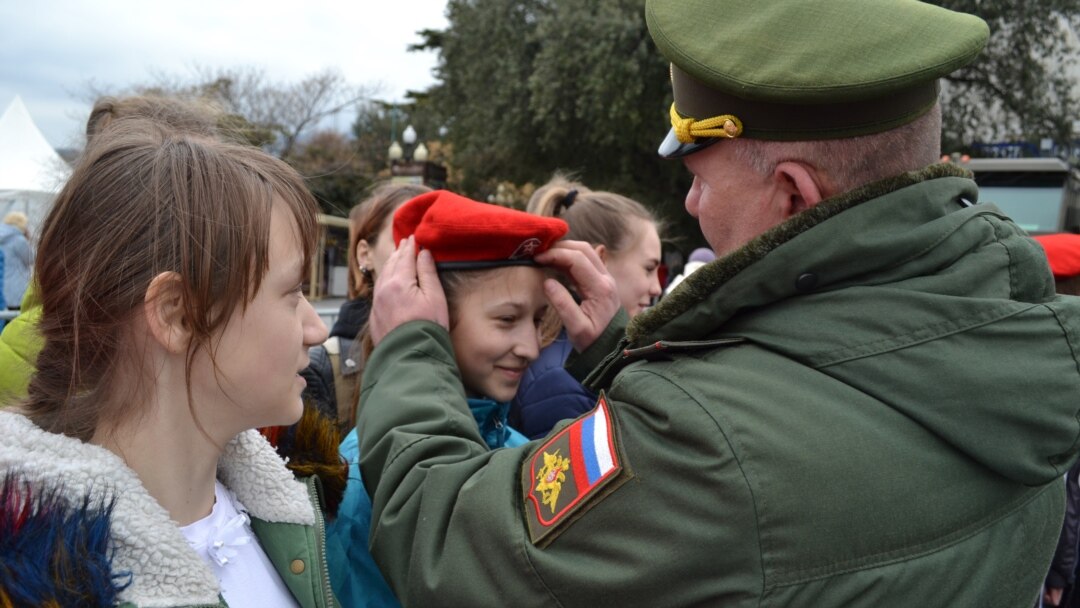
"We understand that children are being re-educated to be placed in russian families or kept in camps without being returned to their families. We know that these schools have very different so-called 'educational programs'," Lunyova shares. "Still, I was personally shocked when children were sent to camps in Chechnya, where they were simply given military training. Also, these children are characterized as having 'difficult behavior' and are being re-educated in the Akhmat battalion to make them 'true patriots' of the russian federation."
This is a military system, and education occurs through educational projects and completely non-pedagogical methods, which aim to sow hatred for one's native country. In this way, children are encouraged to join the ranks of the armed forces of the russian federation when they grow up.
"Often, children are positioned as trophies of the russian military, who seek to take away Ukrainian children and destroy their Ukrainian identity by occupying a settlement"
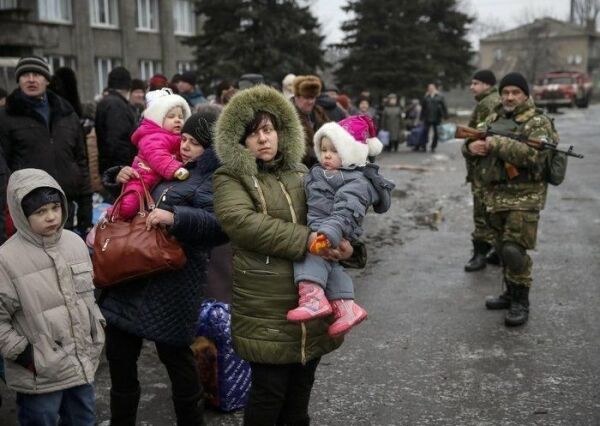
Lunyova emphasizes that the russian military constantly talks about this, emphasizing that Ukrainian children are not russian enough, do not understand the russian language on a necessary level, and do not love russia and putin enough:
"This needs to be taken very seriously, and it is important to talk with Ukraine's foreign partners about how the children can be saved from there. Unfortunately, this mechanism currently only works when family caregivers, direct relatives, or grandparents apply," Lunyova continues. "That is why there is a dissonance in the numbers — 307 children were returned, and only according to the data of the National Information Bureau, about 16,000 Ukrainian children are on the territory of russia. Therefore, Ukraine must look for ways to return the children more systematically."
In addition to the deportation of children, approximately five million adults were also deported to the territory of russia.
"I think that the purpose of the russians in deporting Ukrainians is propaganda. They distribute people across the territory of the russian federation from Krasnodar to Khabarovsk. This is made to show Ukrainians who are allegedly fleeing from the Kyiv regime, saving themselves, and to show that russia is saving Ukrainians," says Lunyova.
"The russians do nothing without a propaganda goal"
Ukrainian authorities did not have time to organize the evacuation of boarding houses and sanatoriums that housed children before russia's swift invasion of Ukrainian provinces.
"For example, the Kherson region was occupied in one week. Should they have had evacuation plans? Of course. It is not only about children's institutions. There were older adult boarding houses and institutions for adults with disabilities. After all, even some prisons got deported," says Lunyova.
Therefore, the state at the level of regions and the ministries had to ensure the availability of evacuation plans. The authorities had to monitor the availability of these plans and the evacuation itself, especially considering that not all establishments ended up in the occupied territory simultaneously.
"I, for example, know that the heads of these institutions acted at their peril and risk," says Lunyova, "because in the beginning, when they realized that the territory was being occupied, they started giving away the children to the parents who had their own. And when the russians came, these establishments were empty or half-empty."
Lunyaova says this happened not only in the Kherson, Donetsk, and Luhansk regions, and that it was the state's fault that such institutions did not have contingency plans in case they needed to evacuate, and that they failed to act quickly enough in the face of the russian invasion. "The authorities at the level of regions must make decisions on the evacuation of closed institutions and evacuation in general on time," Lunyova told Rubryka.
What is the solution?
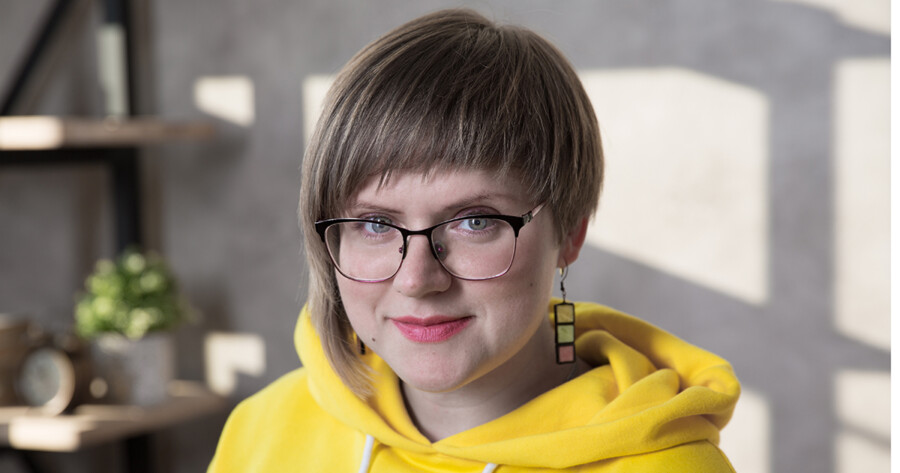
Children who have been adbucted and taken to russia come from many different circumstances, , so their return to Ukraine may also look different. In any case, when it comes to the fact that the child disappeared even after the parents voluntarily sent them to russia or the russian-occupied Crimea for rehabilitation, the official authorities of Ukraine must know about such a child.
"Searching for children on the territory of the russian federation is a rather complicated process"
"Children themselves often cannot contact their parents if they are still young," says Lunyova, who is the director of the ZMINA Center for Human Rights. "We were often told in interviews that the chaperones who took the children to the camp asked not to give them mobile phones. Therefore, sometimes children do not even have the opportunity to tell their parents where they are. And these escorts themselves at some point simply disappeared. I know of cases from the Kherson region when the parents sent the child to Yevpatoria, Crimea, and the child is still there. The parents do not report to law enforcement agencies because they fear being accused of collaborationism. But it seems to me that this fear is not justified. In such conditions, it is difficult to make balanced decisions. And therefore, the prospect that the child will be in Yevpatoria in relative safety may seem better than the child's being under fire."
In any case, Lunyova emphasizes that parents should contact the law enforcement authorities and at least report that their children are on the territory of the russian federation.
If parents do not know the whereabouts of their child or, other relative, they should contact the following institutions:
- the law enforcement agencies, as a matter of priority;
- the National Information Bureau,
- the Office of the Verkhovna Rada Commissioner for Human Rights.
These institutions are responsible for negotiating with the russian federation regarding releasing Ukrainian prisoners, and can also communicate about children.
In addition, parents may contact non-governmental organizations ready to advise on this issue, including ZMINA.
"If it is known where a child is on the territory of russia, in Ukraine, they will begin to look for their parents, guardians, relatives and do everything possible to return the child to the territory of Ukraine by any means"
Even more useful solutions!
It is important for a child kidnapped and taken to russia to let their parents or anyone else know about them.
"Unfortunately, russia is a huge country, so to find a child, one needs to know at least the region where they are," says Lunyova. "There are cases when older children, having phones with Internet access, looked for ways to leave the territory of the russian federation."
For example, if a child contacts an organization to assist them in leaving by securing a birth certificate made in Ukraine, which will help the child exit the territory of russia. Ukraine's Ministry of Reintegration or the Ombudsman works to find solutions in this process when contacted by organizations trying to help.
How can international organizations help return Ukrainian children?
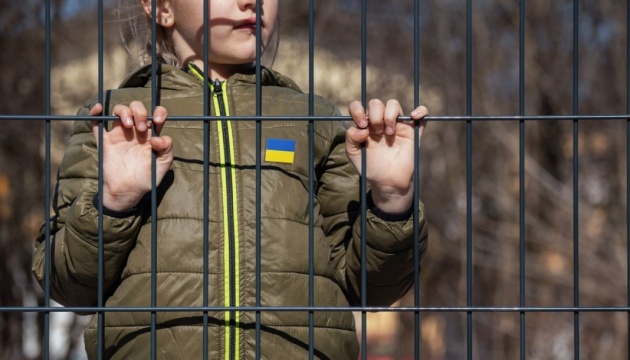
International organizations like the United Nations and the Organization for Security and Cooperation in Europe (OSCE) structures working on the territory of the russian federation have a limited mandate that does not empower them to look into the issue of child abductions on the territory of the russian federation. They have an exclusively humanitarian mandate, and while may be allowed to distribute aid, the issue of child abduction is normally dealt with by law enforcement.
"When, at the beginning of the full-scale aggression, we asked them whether they had access to the points of temporary placement of Ukrainians on the territory of russia because these were, in fact, places of imprisonment, and people were not released from there, they told us that they did not," Lunyova shares.
What can international organizations do?
- Discuss and look for mechanisms for the return of Ukrainian children.
- Demand that the russian federation compile lists of children it evacuated because it is obliged to do so.
- Find a third country that can become an intermediary in communication with the russian federation to demand the return of the children.
This is not a simple issue, and it will not be resolved quickly, but Ukraine has to do its homework and document the lists of mass-deported Ukrainian children so that when this mechanism can work, all data is available.
"We are in the coalition 'Ukraine. Five in the morning,' which is engaged in documenting war crimes, and the ZMINA organization is working on documenting such cases with the aim that when it is necessary to talk about the return of Ukrainian children more systematically, we will be able to talk about it thoroughly," says Lunyova.
Who should answer for the kidnapping of Ukrainian children?
Advocates say that a large-scale crime such as the mass abduction of children calls for large-scale punishment.
"We believe, like many colleagues from the human rights sector, that this is a component of the crime of genocide," Lunyova told Rubryka. "Therefore, it is possible that if we are talking about genocidal intent, then we can talk about the responsibility of the highest political leadership of the russian federation and personally about the representative of the president of the russian federation for children's affairs Maria Lvova-Belova and the entire structure she is heading."
If the deportation is not to be considered genocide, proceedings should be opened at the national level. Then, those who organized the deportation process can be prosecuted. If the International Criminal Court is in question, the russian federation's leadership, which decides to take away Ukrainian children and place them in families and issue russian passports, must be brought to responsibility. Therefore, the chain of the accused can be long.
"We hope that the investigation will take place at all levels and the culprits will be brought to justice so that they sit on the docks," concluded Lunyova, Director of Advocacy of the ZMINA Human Rights Center.
The article was published with the assistance of the Institute for War and Peace Reporting.
Newsletter
Digest of the most interesting news: just about the main thing








